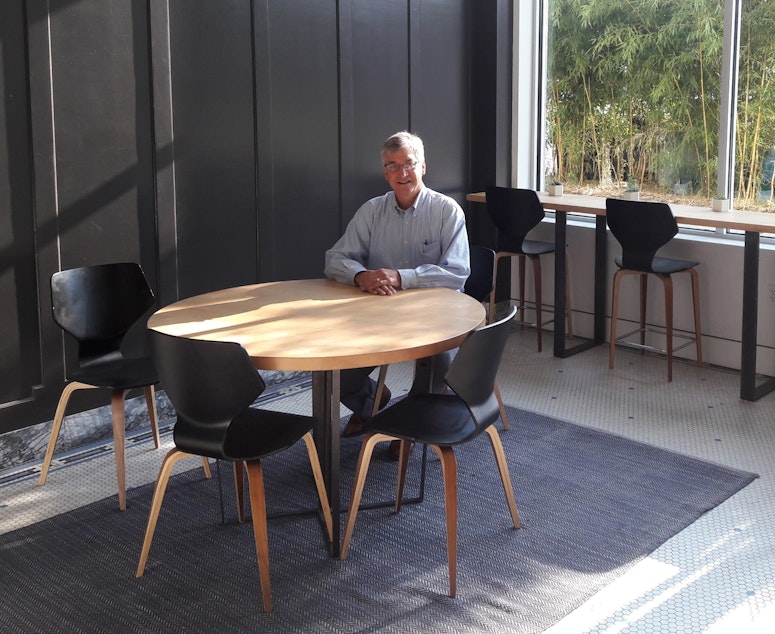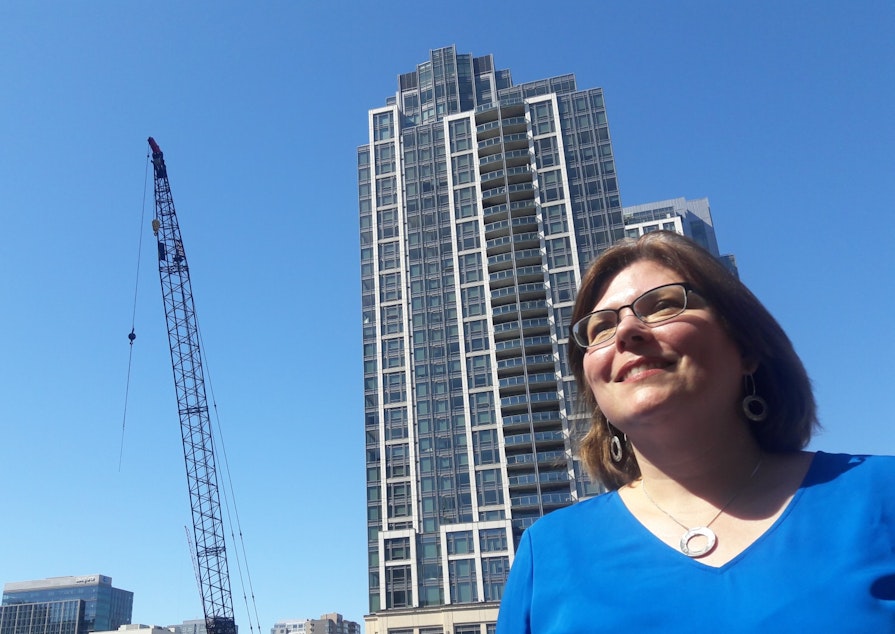Parking requirements may keep affordable housing at bay in Bellevue

People love their parking. That’s especially true in Bellevue, a city with a shopping mall at the center of its downtown. But Bellevue’s parking may also be holding it back from developing affordable housing.
Bellevue has a lot of parking spaces: 344,000 of them, according to Eric Scharnhorst, who runs parking research startup Parkingmill.
Parkingmill sucks in property assessments and spits out analyses of how much parking each city has. In Bellevue, there's "almost seven parking stalls per home," Scharnhorst said.
Scharnhorst has also run the numbers on Seattle, which has about five parking stalls per household. That’s higher than dense East Coast cities, lower than sprawling Midwest cities.
Seattle and Bellevue hold top honors in creating some of the most expensive parking in the country. That's because, more than any other place, we build parking garages here.
“The structured parking in Bellevue and Seattle is really off the charts when compared to other big U.S. cities,” said Scharnhorst.
Until recently, both cities required parking in new buildings, necessitating the garages. But now Seattle and Bellevue are going in different directions.
Today, Seattle has eliminated the parking requirement for new projects close to frequent transit, often despite significant public opposition. Bellevue, meanwhile, has held on to its parking requirements.
That has real world implications in terms of what kind of housing gets built in each city going forward.
Hal Ferris, for example, is a developer who’d like to build in Bellevue. But he says he won’t because of the parking requirements.
Ferris and his company Spectrum Development Solutions build market-rate apartments targeted to families with lower-middle-class incomes. They don’t get big subsidies, but the projects still pencil out because he doesn’t build expensive parking garages.
Ferris shared some of his calculations with us:
A single parking stall in an underground garage adds $50,000 average to the cost of a project on average. This means Ferris needs an an additional payment of $250 per month, through a combination of parking fees and rent.
But people in Seattle aren’t willing to pay that much money to rent a parking space. So all rents in the building must rise to pay the difference.
“That kind of parking requirement is going to result in high-end rental apartments,” said Ferris. “Which is most of what’s being built in Bellevue right now.”
Ferris said the higher the parking requirement, the higher the rents.
The mayor of Bellevue recently appointed Ferris to an affordable housing task force. Ferris offered Bellevue this advice: “They should have no parking requirement," he said, at least near transit.
But even with light rail coming downtown, Bellevue has yet to give up its mandated parking spaces.

That’s because the city relies on convenient parking to keep its economy flowing, according to Bellevue City Councilmember Jennifer Robertson. Bellevue relies on sales tax, and the number one source of sales tax revenue for Bellevue? Auto sales.
Retail sales come in second place, Robertson said, and downtown shopping areas with plentiful parking boost sales tax revenue, too.
"As long as we want to keep our economy booming, we need to make sure there’s a place for people to put their vehicle," Robertson said.
In 2023, light rail will open another way for people around the region to connect with shopping in Bellevue. Developers like Hal Ferris think Bellevue should start preparing for that future now.
But with light rail still five years away, that’s an argument Bellevue isn’t quite ready to swallow yet.
Correction: An earlier version of this story misidentified the year light rail opens in Bellevue.




